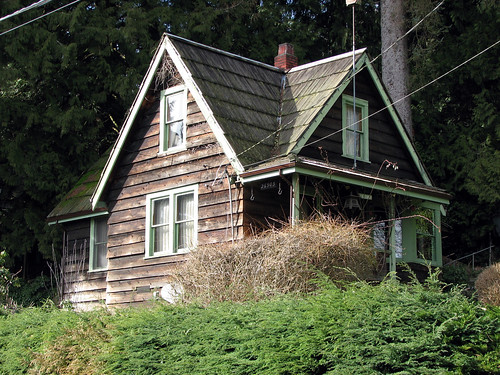Meadbh
Give me a museum and I'll fill it. (Picasso) Give me a forum ...
- Joined
- Jul 22, 2006
- Messages
- 11,401
What if, this time, it really is different?
I have been thinking about the long term societal consequences of the present global financial crisis. The stock market will rebound, but will large numbers of regular folks trust it again? Will the markets function? How will entrepreneurs raise capital? How will this affect the place of the US in the world?
One scenario might be as follows:
It is 2015. The global recession that began in 2008 is still ongoing. Global banking has been consolidated and is tightly regulated by the IMF. Interest rates are high. Global prime is 8%, but credit is almost impossible to get. The cost of capital is stifling growth. Markets are considered speculative. Securities regulation has dramatically increased. Unemployment is 15%. Poverty levels have soared. Those who are lucky enough to be working are saving 10% of income, mostly in cash or government bonds.
We are reducing, reusing and recycling as a matter of course, because we can't afford new stuff. Barter systems thrive. Wants are distinguished from needs. Consumption and spending have fallen in the West. The north American auto industry collaped in 2010 and most new vehicles are hybrids or hydrogen fuel cells. Oil consumption has flattened and middle eastern imports have dropped. Golf courses have been turned into community gardens where food is locally grown. Recreation is cheap and simple. Public libraries are the new Starbucks. People are walking more and the obesity epidemic is finally coming under control. The US pulled out of Iraq and Afghanistan in 2011, leaving the Taliban to work it out. Osama Bin Laden died of boredom. The US defense forces are now focusing on homeland security. Rising superpowers are be those countries in which people routinely hard work without luxuries. By 2025, China is poised to rule the world. India is the next engine of innovation.
Hey, it's not all bad!
I have been thinking about the long term societal consequences of the present global financial crisis. The stock market will rebound, but will large numbers of regular folks trust it again? Will the markets function? How will entrepreneurs raise capital? How will this affect the place of the US in the world?
One scenario might be as follows:
It is 2015. The global recession that began in 2008 is still ongoing. Global banking has been consolidated and is tightly regulated by the IMF. Interest rates are high. Global prime is 8%, but credit is almost impossible to get. The cost of capital is stifling growth. Markets are considered speculative. Securities regulation has dramatically increased. Unemployment is 15%. Poverty levels have soared. Those who are lucky enough to be working are saving 10% of income, mostly in cash or government bonds.
We are reducing, reusing and recycling as a matter of course, because we can't afford new stuff. Barter systems thrive. Wants are distinguished from needs. Consumption and spending have fallen in the West. The north American auto industry collaped in 2010 and most new vehicles are hybrids or hydrogen fuel cells. Oil consumption has flattened and middle eastern imports have dropped. Golf courses have been turned into community gardens where food is locally grown. Recreation is cheap and simple. Public libraries are the new Starbucks. People are walking more and the obesity epidemic is finally coming under control. The US pulled out of Iraq and Afghanistan in 2011, leaving the Taliban to work it out. Osama Bin Laden died of boredom. The US defense forces are now focusing on homeland security. Rising superpowers are be those countries in which people routinely hard work without luxuries. By 2025, China is poised to rule the world. India is the next engine of innovation.
Hey, it's not all bad!

